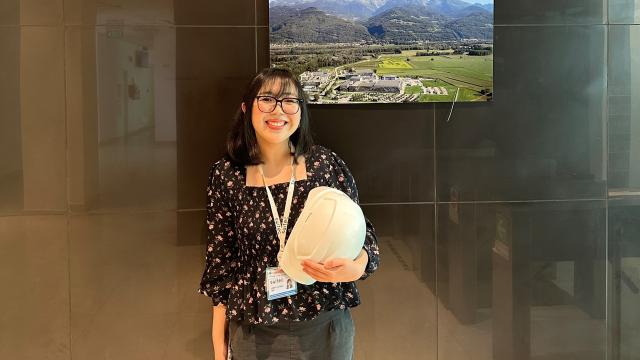The Singapore Institute of Technology’s upcoming Punggol Campus features a Living Labs Initiative that aims to bridge the industry-academia gap through strategic partnerships.

An artist's rendering of SIT Campus Court, one of the two main plots that make up the upcoming SIT Punggol Campus.
The Singapore Institute of Technology (SIT) has always been known for its close ties with industry. As a university of applied learning, it nurtures future-ready talent and provides opportunities for students to integrate into industry and gain real-world experience.
And the need to introduce innovative education pathways cannot come too soon. As part of the university’s ongoing bid to transform learners to meet industry demands, skills gaps have been identified across the IT sector and green industry, among others. SkillsFuture Singapore, which drives the country’s career education and training efforts, identified that skills like software development, big data analytics and AI, as well as green skills such as green facilities management and environmental sustainability management, will be more in demand in the country.
SIT has always prioritised bridging the industry-academia gap by enabling authentic learning to take place in real-world environments, which is done through programmes like its Integrated Work Study Programme (IWSP). The university is set to take things one step further with new partnerships to bolster its education and research offerings as it prepares for the move to its upcoming Punggol Campus, located within the Punggol Digital District, in the northeast of Singapore,
Partnerships with Global Technology Players
Partnerships with industry players is one way that SIT is enhancing its applied learning and applied research offerings for students. In May this year, the university announced partnerships with global technology players Oracle and Salesforce.
“The move to Punggol presents many opportunities for SIT to differentiate and strengthen our education offerings,” said SIT President Professor Chua Kee Chaing. “Our Living Labs represent our commitment to transform learning by amplifying the capabilities of our students, faculty and researchers,” he added. “In more ways than one, SIT is well-positioned to be Singapore’s premier university of applied learning.”
The SIT Punggol Campus is anticipated to be ready in 2024.
With Oracle, SIT is jointly establishing a Living Lab which features a digital sandbox platform. SIT students, researchers and industry partners can use the platform to collaborate on business solutions and technological innovation that will drive business sustainability and productivity. Oracle experts will provide support in their areas of expertise, such as in database management and cloud computing.
SIT is also working with Oracle to integrate content from the Oracle Academy into its training curriculum for undergraduate students and mid-career learners.
SIT will tap on Oracle Academy's learning resources in artificial intelligence, machine learning and data analytics to support faculty and students in applied learning and research. Suitable professionals will also be able to participate in SIT’s Industrial Master’s and Industrial Doctorate programmes and work on Oracle projects.
SIT is also partnering with customer relationship management solutions provider Salesforce. The Learning Lab, developed alongside Salesforce, will equip SIT students with the skills needed to develop applications and prototypes that will benefit social service agencies.
“By developing solutions for real-world problems social service agencies are facing, this partnership goes a long way in helping non-profits transform digitally and deliver greater impact to their beneficiaries,” said Sujith Abraham, Senior Vice President and General Manager, ASEAN, at Salesforce.
Beyond students, mid-career individuals participating in SIT’s Continuing Education & Training (CET) programmes will also benefit from the partnership. Under the university’s Competency-based Stackable Micro-credential (CSM) pathway, participants can pursue upskilling opportunities to build CRM competencies and enhance their expertise.
They will also have access to the Salesforce ecosystem of partner and customer organisations for work attachment opportunities, augmenting their real-world learning experiences.
Learning by Design
SIT’s Punggol Campus is designed for collaborative and hands-on experiential learning that aims to forge stronger industry collaborations. Of particular interest is a building known as The Hatchery – a 10-storey facility created to facilitate cross-fertilisation and incubation of ideas between academia and industry.
The campus will feature spaces to enable discussions and collaborations.
Besides creating opportunities for closer ties with the industry, the campus is designed to encourage a collaborative learning environment. Feedback from academic and corporate staff has also been taken into consideration for the design of the new campus. Academic blocks within the campus are outfitted with rooms termed ‘lectorials’, smaller-scale modular study halls designed to support blended learning and encourage discussions and collaborations.
Open-plan seating throughout the campus encourages greater exchange of ideas, improves communication and strengthens collaboration among staff and faculty alike.
The campus is slated for completion in 2024.
This article was first published in GovInsider.
![[FA] SIT One SITizen Alumni Initiative_Web banner_1244px x 688px.jpg](/sites/default/files/2024-12/%5BFA%5D%20%20SIT%20One%20SITizen%20Alumni%20Initiative_Web%20banner_1244px%20x%20688px.jpg)


